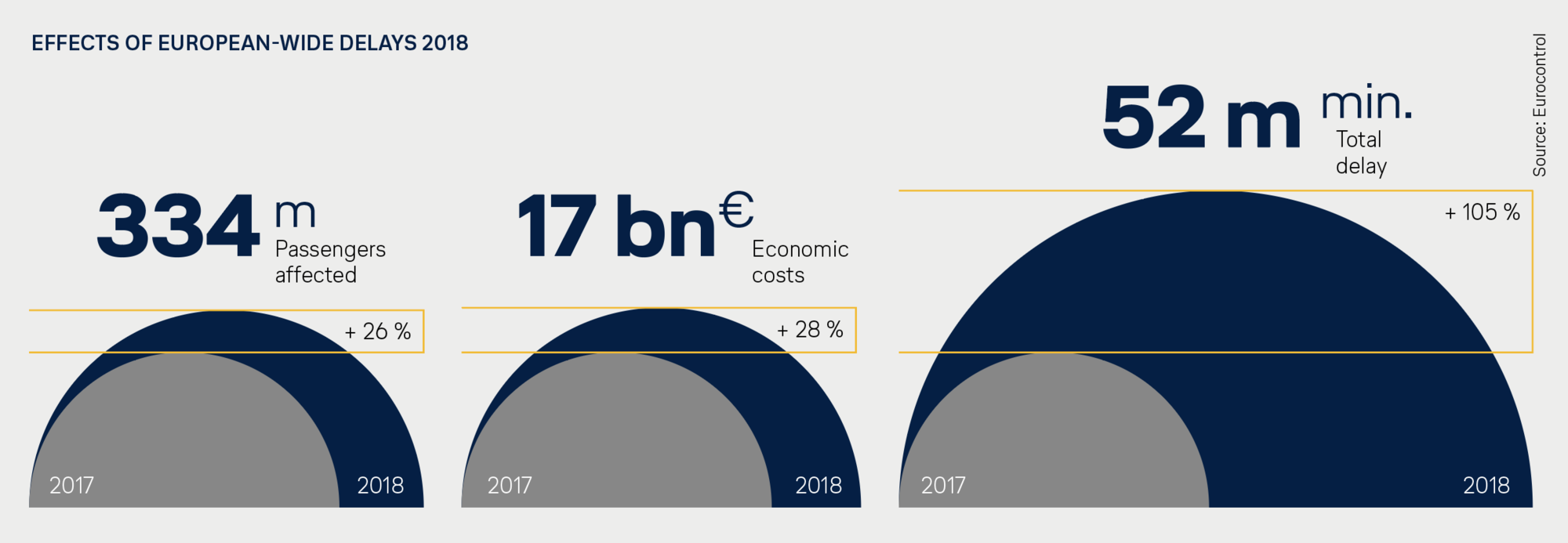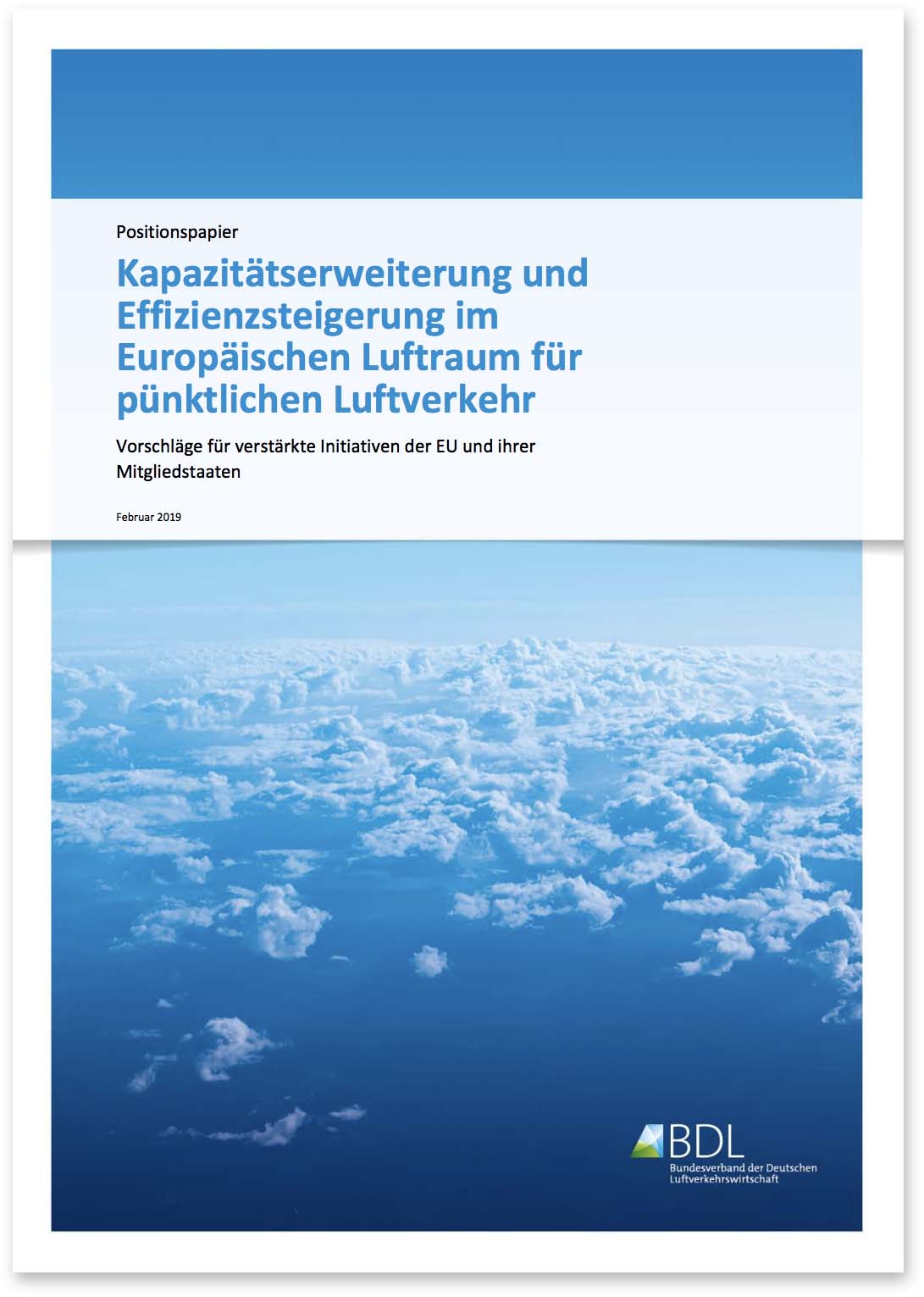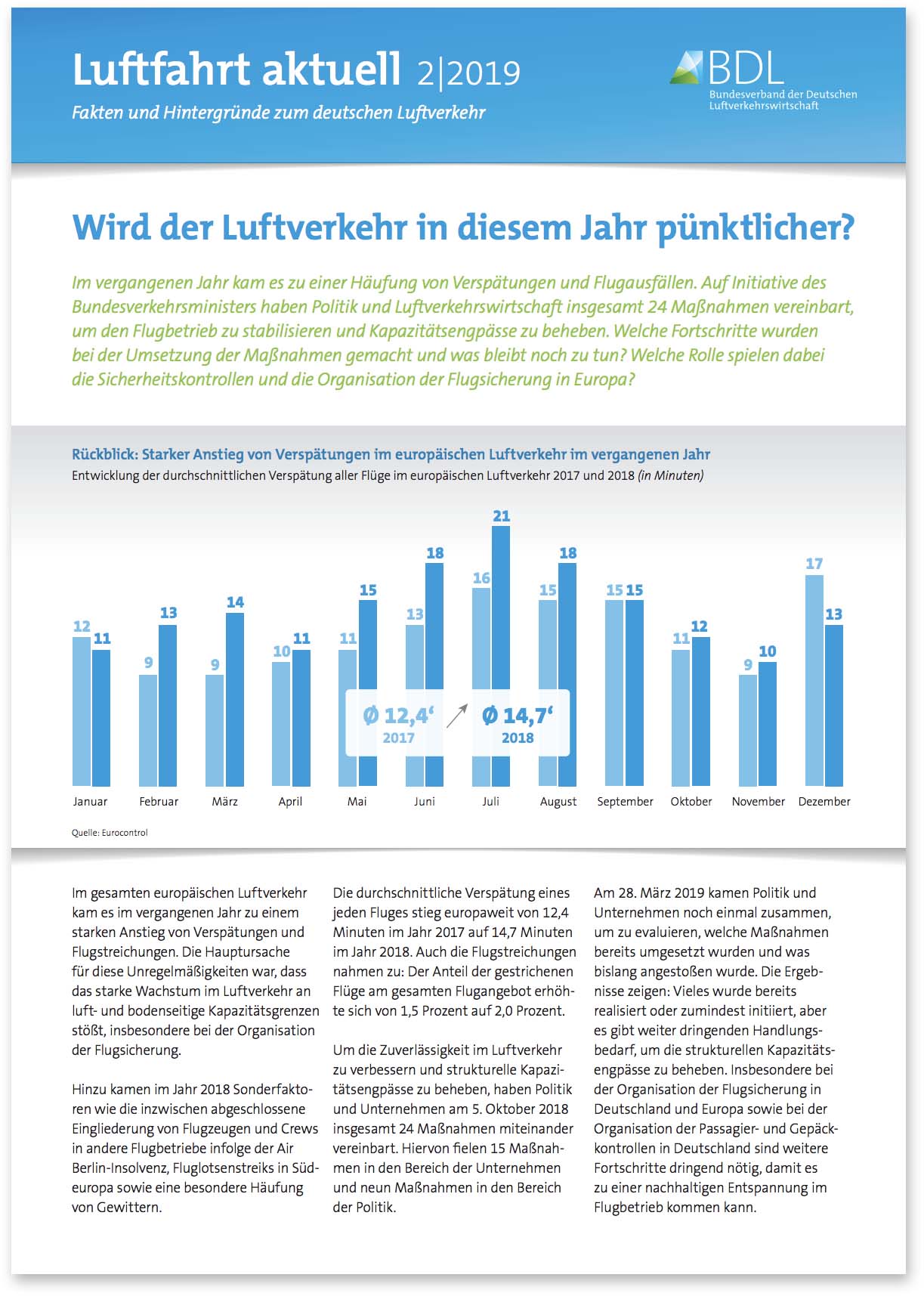Air traffic control
Tackling punctuality problems across europe
The Lufthansa Group is hiring 600 new employees, increasing its reserve capacity to 37 short-haul aircraft and investing a total of around 250 million euros to improve punctuality in the summer. We expect similar commitment from our partners. Air traffic control in particular is called upon.
Effects of european-wide delays 2018

Source: Eurocontrol
According to Eurocontrol, delays increased twofold across Europe in 2018. The main drivers behind this were capacity bottlenecks in airspace and air navigation services, where delays increased by around 80 and 110 percent respectively. Bringing up the rear among the 60 air traffic centers was Karlsruhe, where the controllers have to control a particularly large number of aircraft movements due to overflights. The key reason was that DFS was unable to deploy enough air traffic controllers.
Tackling structural problems
DFS operates in a strictly regulated environment. Enterprises, trade unions and politicians are all called on to address well-known deficits now. Main points:
- More flexible use of air traffic controllers: For the coming summer months, we are hard at work promoting greater flexibility. DFS and employee representatives should work together to facilitate modern working models with part-time shift services. Greater flexibility should also be possible as regards the places of employment.
- Better estimation of personnel requirements: The personnel requirements of DFS are defined by the EU Commission. The basis of this are traffic forecasts, which are updated every five years – and which were set too low for 2018 and 2019. Brussels should shorten the interval.
- Enabling more digitalization: The work of air traffic controllers could be made much easier as the systems become more digital, virtual and harmonized between sites. Numerous technologies have already been developed and introduced to the EU in mid-March as part of the Airspace Architecture Study – they have to be consistently implemented.
- Cross-border collaboration: With a Schengen Area in the air, aircraft would have to fly fewer detours and flight plans would be straightened. Nation states and the respective air traffic control services should pave the way for this.
The delay records of 2018 must not be repeated. All participants in aviation must, therefore, play their part. The growth forecast underlines the pressure to act: By 2040, air traffic in Europe will increase by about 50 percent, according to Eurocontrol.
Effects of european-wide delays 2018

Source: Eurocontrol
Further content on the topic
Position paper
Proposals for punctual air traffic
In 2019, the German Aviation Association (BDL) submitted concrete proposals for increasing the capacity and efficiency of air traffic control in Europe. The objective is: Increased punctuality.

Aviation news
Will air traffic be more punctual in 2019?
In 2018, delays became more frequent. On the initiative of the German transport minister, policy-makers and the aviation industry have agreed a total of 24 measures to stabilise flight operations. What progress has been made and what remains to be done? What role do security checks and the organisation of air traffic control in Europe play?
Facts and background by the German Aviation Association (BDL), last updated in April 2019
